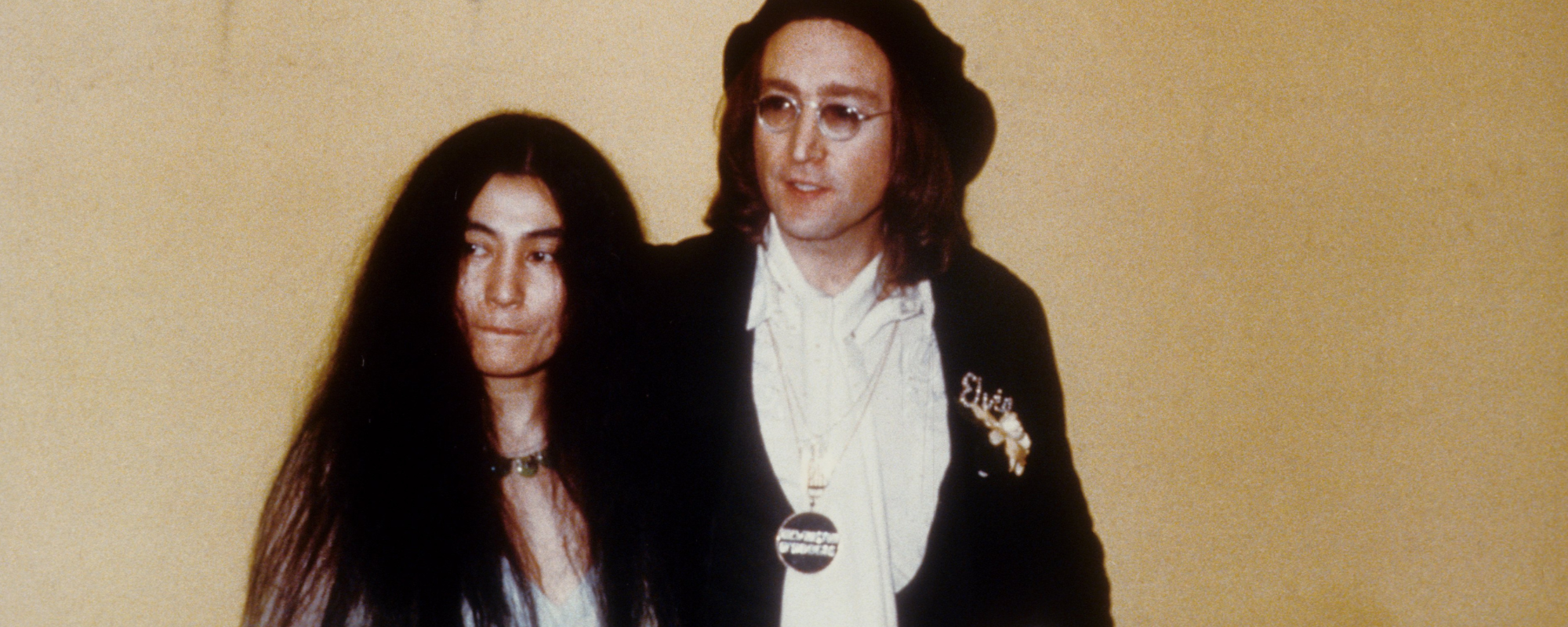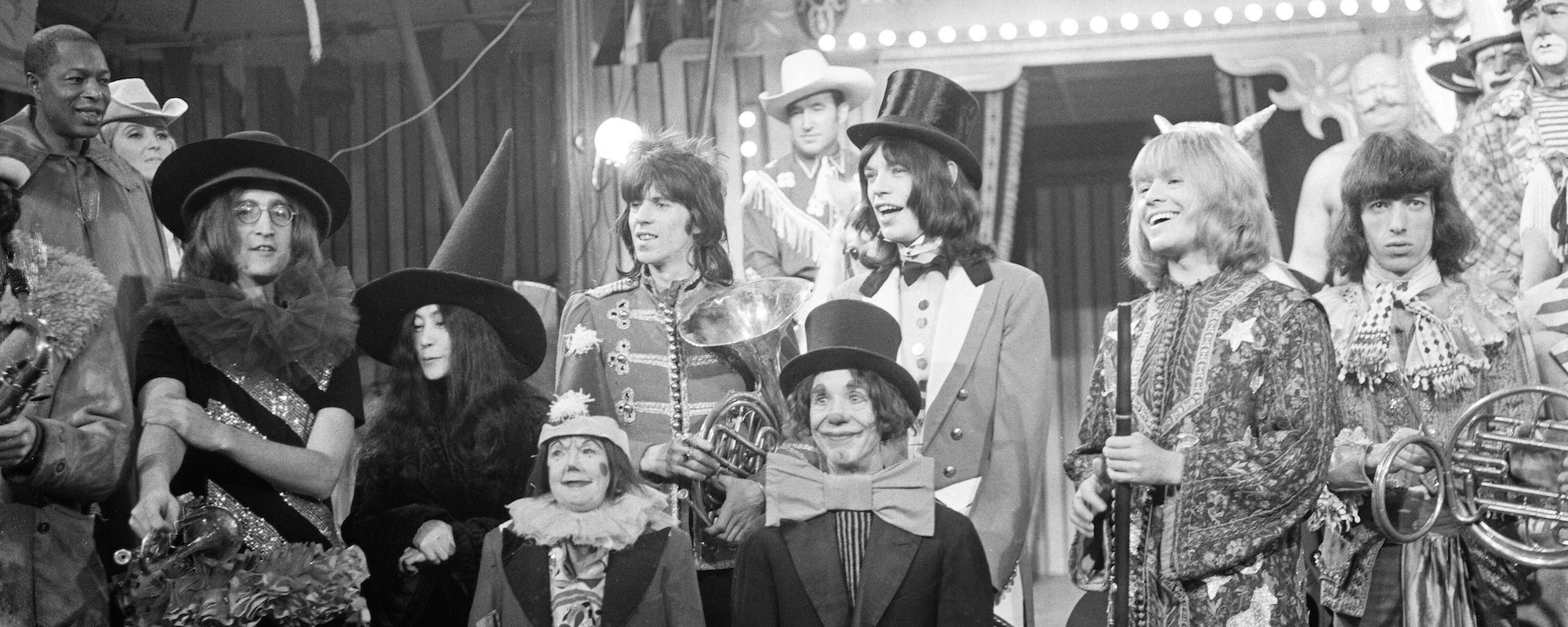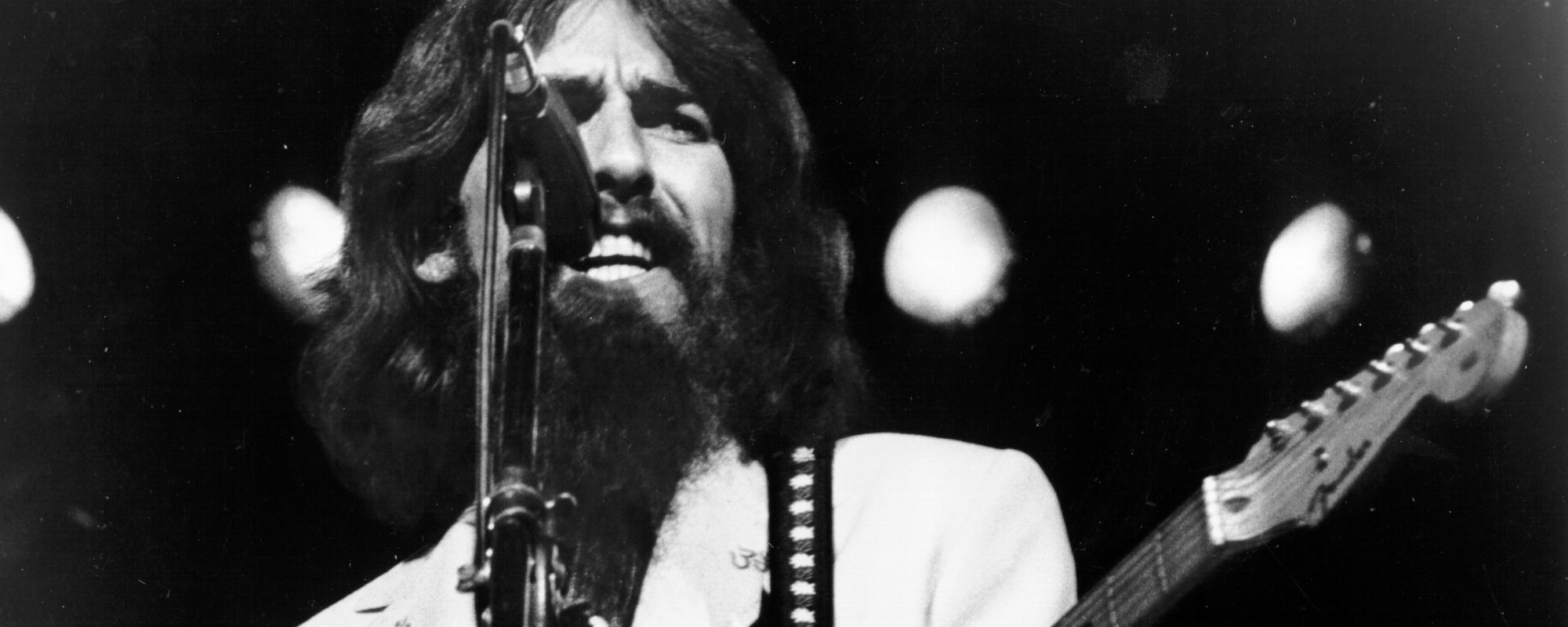The Who started as a band that focused more on singles than albums but transformed into a group that used the long-form format to their advantage like few others. Before the 1950s, the single was king. When artists wanted to release more of their work, labels began bundling the 78 RPM 10-inch records in “albums.” In 1940, Woody Guthrie released a two-volume set called Dust Bowl Ballads. Jazz musicians who felt limited by the time available on one side of a record were some of the most eager to explore longer formats. As 12-inch long-playing records became available, it allowed for the improvisational live performances to be captured.
Videos by American Songwriter
After the birth of rock ‘n’ roll, the single—and its amount of radio play—was the all-important element. It was not uncommon for record labels to rush the production and include “filler” songs purely to get product in the bins. As the ’50s gave way to the ’60s, artists began exploring the album as an art form. Bob Dylan’s Bringing It All Back Home showcased his acoustic folk on one side and featured his new direction of electric rock on the other. This demonstrated how rock music could also be poetry with a message. The Beatles and The Beach Boys both put more focus on their albums as well.
When The Who released their debut album, it featured “My Generation” as the single. It also was filled out with a couple of James Brown covers. As the band went into the studio to record their follow-up album, producer Kit Lambert informed them the record was about 10 minutes short. He urged Pete Townshend to come up with something quick to complete the album and get it in the shops. Let’s take a look at the story behind “A Quick One, While He’s Away” by The Who.
Her man’s been gone for nigh on a year
He was due home yesterday, but he ain’t here
Motivation
When producer Kit Lambert asked Pete Townshend to come up with 10 minutes worth of material to finish The Who’s second album, his main objective was to get something quick. The Who guitarist and principal songwriter had several parts of songs, but nothing was complete. Lambert suggested a pop opera possibly based around the song “Happy Jack.” Townshend began putting ideas together.
Down your street, your crying is a well-known sound
Your street is very well known. throughout your town
Your town is very famous for the little girl
Whose crying can be heard all around the world
Autobiographical
Much of the ideas were from Townshend’s childhood. At the age of six, he was sent to live with his mentally ill grandmother, Denny. As the youngster was distraught, a friend of Denny’s brother reached out and offered a lifeline. In his 2012 memoir Who I Am, Townshend wrote, “That crying was mine as a five- and six-year-old, night after night, for my parents, for my friends from Acton, and my freedom from Denny. A remedy is next promised: we’ll bring your lost lover to you, ‘we’ll give him eagle’s wings, and he can fly to you.’ At this point in my own story, Rosie Bradley observed my suffering and quietly promised me she’d phone Dad and explain how crazily Denny was behaving, and he would surely come and rescue me.”
We have a remedy you’ll appreciate
No need to be so sad. He’s only late
We’ll bring you flowers and things
Help pass your time
We’ll give him eagle’s wings
Then he can fly to you
We have a remedy
Fa la la la la la la
An Imaginary Twin
Lyrics bubbled up from his subconscious as Townshend wrote about experiences he endured at the hands of his grandmother’s visitors. Townshend continued, “I still have nightmares in which my bedroom door opens in the middle of the night, and a shadowy man and woman stand watching me,” As the song continues, the subject being a little girl was still related to his experiences, “In my mind, I was never alone when I lived with Denny. My imaginary constant friend was a twin girl who suffered every privation I suffered.”
Little girl
Why don’t you stop your crying
I’m gonna make you feel alright
My name is Ivor, I’m an engine driver
I know him well. I know why you feel blue
Just cause he’s late don’t mean he’ll never get through
He told me he loved you
He ain’t no liar, I ain’t either
So, let’s have a smile for an old engine driver
An Old Engine Driver
According to Townshend, his grandmother Denny took in men regularly from the bus garage and railway station opposite her residence. Ivor, the engine driver, represents those visitors. Townshend wrote, “This is chilling to me even today: the implicit threat of abuse unless the child cooperates with the abuser.”
Please take a sweet (Take a sweet)
Come take a walk with me (Walk with me)
We’ll sort it out (Sort it out)
Back at my place, maybe (Back at my place, maybe)
It’ll come right
You ain’t no fool, I ain’t either
So why not be nice
To an old engine driver?
We’ll soon be home
We’ll soon be home
We’ll soon,
We’ll soon, soon, soon be home
Dang
Cello, Cello, Cello, Cello
The concept for the musical transition was a grand orchestra for when the main character’s liberator arrives. Townshend’s mother came to the little one’s aid. Producer Lambert informed the band that adding an orchestra to the recording would exceed their budget. The band responded with what they thought was a compromise, asking for only cellos. When Lambert still denied the request, the answer was for the band to use the word “cello” repetitively.
I can’t believe it
Do my eyes deceive me
Am I back in your arms
Away from all harm
It’s like a dream to be with you again
Can’t believe that I’m with you again
I missed you, and I must admit
I’ve kissed a few, and once did sit
On Ivor, the engine driver’s lap
And later with him had a nap
You Are Forgiven
The Who played “A Quick One, While He’s Away” in concert regularly. In 1968, their appearance on The Rolling Stones’ Rock ‘n’ Roll Circus was performing the mini opera. Townshend focused on the ending, “Suddenly, everyone is ‘forgive,’ not once but a thousand times, over and over—as though there’s not enough forgiveness in a single line. When I sang this part live on stage, I would often become furious, thrashing at my guitar until I could thrash no more, frantically forgiving my mother, her lover, my grandmother, her lovers.”
You are forgiven
You are forgiven
You know you’re forgiven
You’re all forgiven!
When you purchase through links on our site, we may earn an affiliate commission.
Photo by Barry Peake/Shutterstock













Leave a Reply
Only members can comment. Become a member. Already a member? Log in.